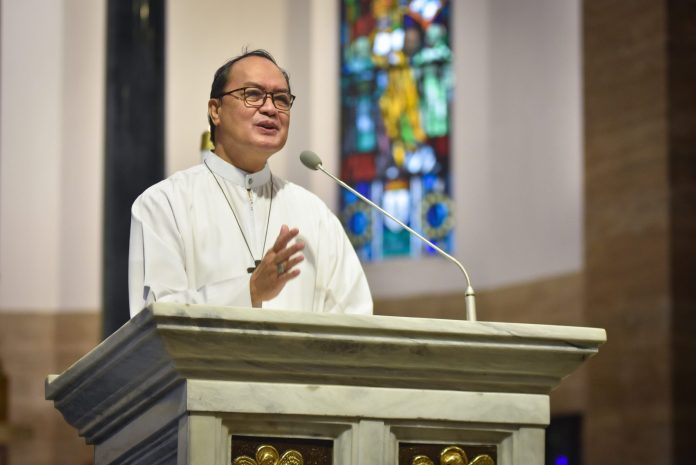The head of the Catholic Bishops’ Conference of the Philippines (CBCP) shone a spotlight on the growing role of overseas Filipino workers (OFWs) in the Church in the ongoing Synod of Bishops in the Vatican.
CBCP president Pablo Virgilio David, the bishop of Kalookan, said OFWs – whom he described as “reluctant” or “accidental” missionaries – need to be empowered as they were not specifically trained for this role.
“Filipinos especially overseas Filipino workers, are finding themselves in new situations all over the world and are forced by circumstances to become what we call ‘accidental missionaries,’” David said in a press briefing on Wednesday at the sidelines of the 16th Ordinary General Assembly of the Synod of Bishops.
OFWs, which account for a tenth of the Philippine population, have kept the country’s economy afloat in times of crisis, as they have become a stable source of foreign exchange inflows. Overseas Filipinos sent $36.14 billion in remittances last year, equivalent to nearly 9 percent of gross domestic product.
David recalled that Pope Francis himself had called OFWs “contrabandistas de fe” or “smugglers of faith”.
“When they really witness to their faith in their host countries, they don’t go out to proselytize. It’s the attractiveness of their effort to live the gospel as Christians that sometimes influences other people,” the CBCP chief said.
This role fits within the synod agenda of “co-responsibility in mission,” which the assembly discussed on Oct. 18, the 15th day of the synod.
The synod, called by Pope Francis in 2021 and expected to wrap up in 2024, is tasked to carve out a path for a “synodal” or more consultative or listening Church.
“Normally when we say mission we only think of missionary congregations, religious people who are sent abroad you know for mission. But now we’re realizing that the whole church is called to mission and that is really the objective of this synod,” David said.
But he cautioned against romanticizing the situation of OFWs, pointing to pastoral challenges such as the breakdown of families lured by the promise of migration to pull them out of poverty.
The “alienation” sometimes felt by OFWs in their host countries is precisely why they “hold on to their faith as their only source of strength and moral courage,” even if they never took it seriously back home, the bishop said.
In Italy, the children of migrant Filipinos may already be integrated with the locals in the school system, but may not feel welcome in either the Italian or Filipino church communities, David noted.
“What I’m pointing out is a big pastoral challenge that is not only for us but also for the church here in Italy,” he said.
It was the first time for a member of the Philippine delegation to speak to the synod press, and also the first time for David to speak after being elected to the synod’s Commission on Information.
David joined a panel that included Cardinal Leonardo Steiner of Manaus, Brazil and Archbishop Zbigņev Stankevičs of Riga.









